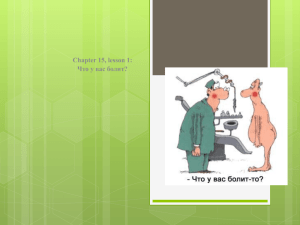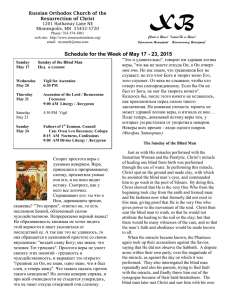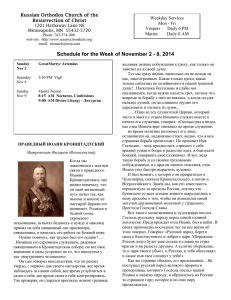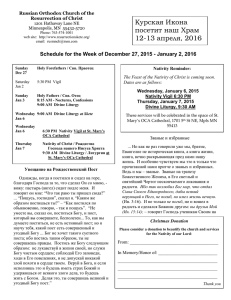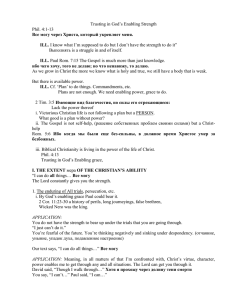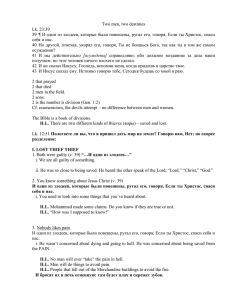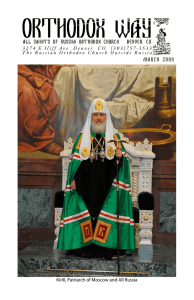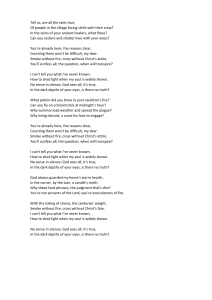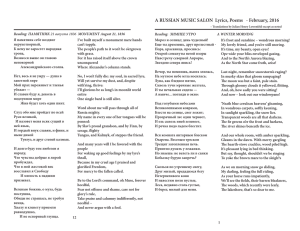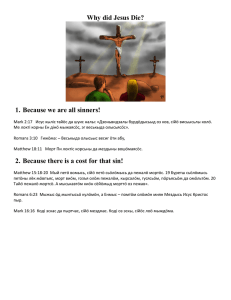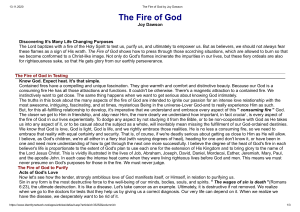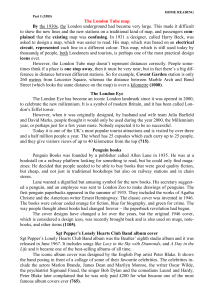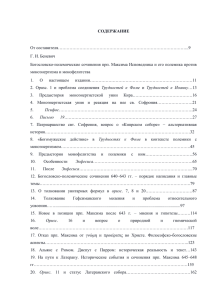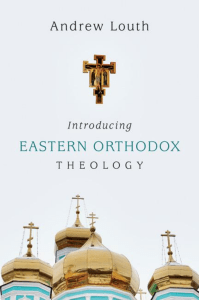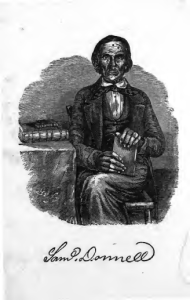Schedule for the Week of August 30 – September 5, 2015
advertisement
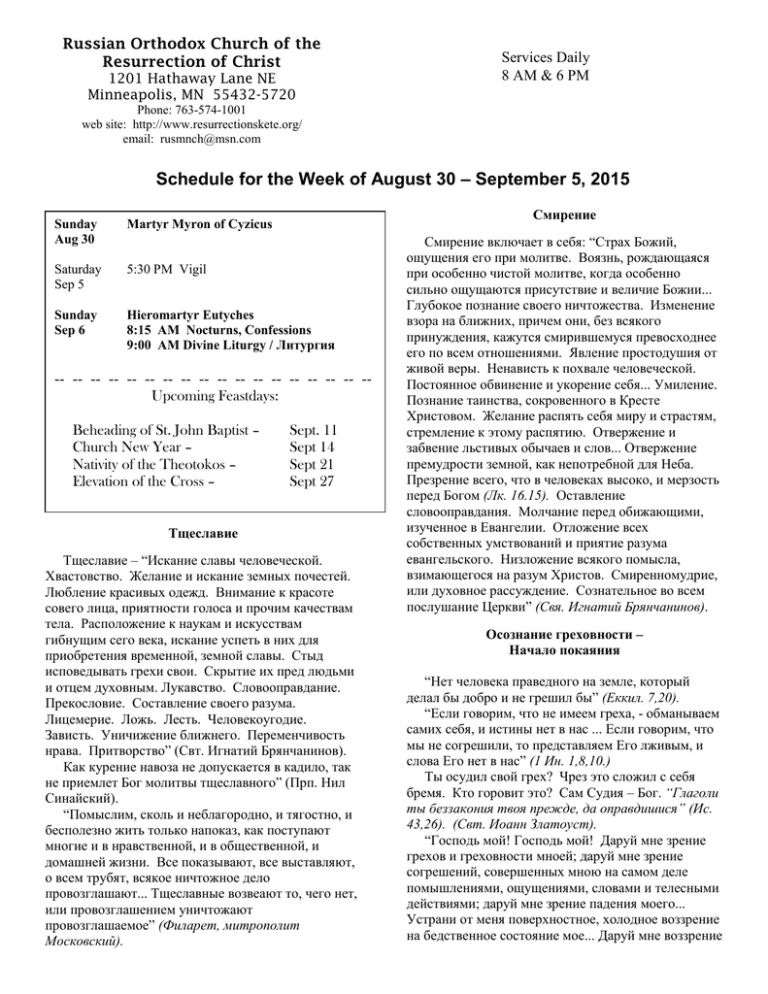
Russian Orthodox Church of the Resurrection of Christ 1201 Hathaway Lane NE Minneapolis, MN 55432-5720 Services Daily 8 AM & 6 PM Phone: 763-574-1001 web site: http://www.resurrectionskete.org/ email: rusmnch@msn.com Schedule for the Week of August 30 – September 5, 2015 Смирение Sunday Aug 30 Martyr Myron of Cyzicus Saturday Sep 5 5:30 PM Vigil Sunday Sep 6 Hieromartyr Eutyches 8:15 AM Nocturns, Confessions 9:00 AM Divine Liturgy / Литургия -- -- -- -- -- -- -- -- -- -- -- -- -- -- -- -- -- -Upcoming Feastdays: Beheading of St. John Baptist – Church New Year – Nativity of the Theotokos – Elevation of the Cross – Sept. 11 Sept 14 Sept 21 Sept 27 Тщеславие Тщеславие – “Искание славы человеческой. Хвастовство. Желание и искание земных почестей. Любление красивых одежд. Внимание к красоте совего лица, приятности голоса и прочим качествам тела. Расположение к наукам и искусствам гибнущим сего века, искание успеть в них для приобретения временной, земной славы. Стыд исповедывать грехи свои. Скрытие их пред людьми и отцем духовным. Лукавство. Словооправдание. Прекословие. Составление своего разума. Лицемерие. Ложь. Лесть. Человекоугодие. Зависть. Уничижение ближнего. Переменчивость нрава. Притворство” (Свт. Игнатий Брянчанинов). Как курение навоза не допускается в кадило, так не приемлет Бог молитвы тщеславного” (Прп. Нил Синайский). “Помыслим, сколь и неблагородно, и тягостно, и бесполезно жить только напоказ, как поступают многие и в нравственной, и в общественной, и домашней жизни. Все показывают, все выставляют, о всем трубят, всякое ничтожное дело провозглашают... Тщеславные возвеают то, чего нет, или провозглашением уничтожают провозглашаемое” (Филарет, митрополит Московский). Смирение включает в себя: “Страх Божий, ощущения его при молитве. Воязнь, рождающаяся при особенно чистой молитве, когда особенно сильно ощущаются присутствие и величие Божии... Глубокое познание своего ничтожества. Изменение взора на ближних, причем они, без всякого принуждения, кажутся смирившемуся превосходнее его по всем отношениями. Явление простодушия от живой веры. Ненависть к похвале человеческой. Постоянное обвинение и укорение себя... Умиление. Познание таинства, сокровенного в Кресте Христовом. Желание распять себя миру и страстям, стремление к этому распятию. Отвержение и забвение льстивых обычаев и слов... Отвержение премудрости земной, как непотребной для Неба. Презрение всего, что в человеках высоко, и мерзость перед Богом (Лк. 16.15). Оставление словооправдания. Молчание перед обижающими, изученное в Евангелии. Отложение всех собственных умствований и приятие разума евангельского. Низложение всякого помысла, взимающегося на разум Христов. Смиренномудрие, или духовное рассуждение. Сознательное во всем послушание Церкви” (Свя. Игнатий Брянчанинов). Осознание греховности – Начало покаяния “Нет человека праведного на земле, который делал бы добро и не грешил бы” (Еккил. 7,20). “Если говорим, что не имеем греха, - обманываем самих себя, и истины нет в нас ... Если говорим, что мы не согрешили, то представляем Его лживым, и слова Его нет в нас” (1 Ин. 1,8,10.) Ты осудил свой грех? Чрез это сложил с себя бремя. Кто горовит это? Сам Судия – Бог. “Глаголи ты беззакония твоя прежде, да оправдишися” (Ис. 43,26). (Свт. Иоанн Златоуст). “Господь мой! Господь мой! Даруй мне зрение грехов и греховности мноей; даруй мне зрение согрешений, совершенных мною на самом деле помышлениями, ощущениями, словами и телесными действиями; даруй мне зрение падения моего... Устрани от меня поверхностное, холодное воззрение на бедственное состояние мое... Даруй мне воззрение правильное, чтобы оно ввело меня в жительство, соответствующее моему бедственному состоянию, чтобы оно ввело меня в плач” (Свт. Игнатий Брянчанинов). The Veneration of the Mother of God During Her Earthly Life Excerpts from a sermon by St. John of San Francisco FROM APOSTOLIC TIMES and to our days all who truly love Christ give veneration to Her Who gave birth to Him, raised Him and protected Him in the days of His youth. If God the Father chose Her, God the Holy Spirit descended upon Her, and God the Son dwelt in Her and submitted to Her in the days of His youth, was concerned for Her when hanging on the Cross, then should not everyone who confesses the Holy Trinity venerate Her? Still, in the days of Her earthly life, the friends of Christ, the Apostles, manifested a great concern and devotion for the Mother of the Lord, especially the Evangelist John the Theologian, who, fulfilling the will of Her Divine Son, took Her to himself and took care for Her as for a mother from the time when the Lord uttered to him from the Cross the words: ”Behold thy mother.”… The Virgin Mary during Her earthly life avoided the glory which belonged to Her as the Mother of the Lord. She preferred to live in quiet and prepare Herself for the departure into eternal life. To the last day of Her earthly life She took care to prove worthy of the Kingdom of Her Son, and before death She prayed that He might deliver Her soul from the malicious spirits that meet human souls on the way to heaven and strive to seize them so as to take them away with them to Hades. The Lord fulfilled the prayer of His Mother and in the hour of Her death Himself came from heaven with a multitude of angels to receive Her soul. The Apostles gave Her most pure body over to burial with sacred hymns, and on the third day they opened the tomb so as once more to venerate the remains of the Mother of God together with the Apostle Thomas, who had arrived then in Jerusalem. But they did not find the body in the tomb, and in perplexity they returned to their own place; and then, during their meal, the Mother of God Herself appeared to them in the air, shining with heavenly light, and informed them that Her Son had glorified Her body also, and She, resurrected, stood before His Throne. At the same time She promised to be with them always. The Apostles greeted the Mother of God with great joy and began to venerate Her not only as the Mother of their beloved Teacher and Lord, but also as their heavenly helper, as a protector of Christians and intercessor for the whole human race before the Righteous Judge. And everywhere the Gospel of Christ was preached, His Most Pure Mother also began to be glorified. The more the faith of Christ spread and the Name of the Savior of the world was glorified on earth, the more did the hatred of the enemies of Christ increase towards Mary. [Being] the Mother of Jesus, She manifested a hitherto unheard-of example of purity and righteousness, and furthermore, now departed from this life, She was a mighty support for Christians, even though invisible to bodily eyes. Therefore all who hated Jesus Christ and did not believe in Him transferred their hatred for Christ, for the Gospel and the Church, to the Most Pure Virgin Mary. They wished to belittle the Mother, so as thereby to destroy faith also in Her Son. Seeing that Christianity was spreading everywhere, the enemies of Christ resolved not to manifest their lack of veneration for the body of the Most Pure One. They began to spread various vile slanders about Christians. They did not spare the name of the Mother of Christ either, and they invented the story that Jesus of Nazareth had come from a base and immoral environment, and that His Mother had associated with a certain Roman soldier. But here the lie was too evident for this fiction to attract serious attention. The whole family of Joseph the Betrothed and Mary Herself were known well by the inhabitants of Nazareth and the surrounding countryside in their time: “Whence hath this man this wisdom and these mighty works? Is not this the carpenter's son? Is not his mother called Mary, and his brethren James and Joseph and Simon and Judas? And his sisters, are they not all with: us?” (Matt. 13:54-55; Mark 6:3; Luke 4:22.) So said His fellow countrymen in Nazareth when Christ revealed before them in the Synagogue His otherworldly wisdom. In small towns the family matters of everyone are well known; very strict watch was kept then over the purity of married life. Would people really have behaved with respect towards Jesus, called Him to preach in the synagogue, if He had been born of illegitimate cohabitation? To Mary, the law of Moses would have been applied, which commanded that such persons be stoned to death; and the Pharisees would have taken the opportunity many times to reproach Christ for the conduct of His Mother. But just the contrary was the case. Mary enjoyed great respect; at Cana She was an honored guest at the wedding, and even when Her Son was condemned, no one allowed himself to ridicule or censure His Mother. (excerpted from an article printed by St. Herman Press)

